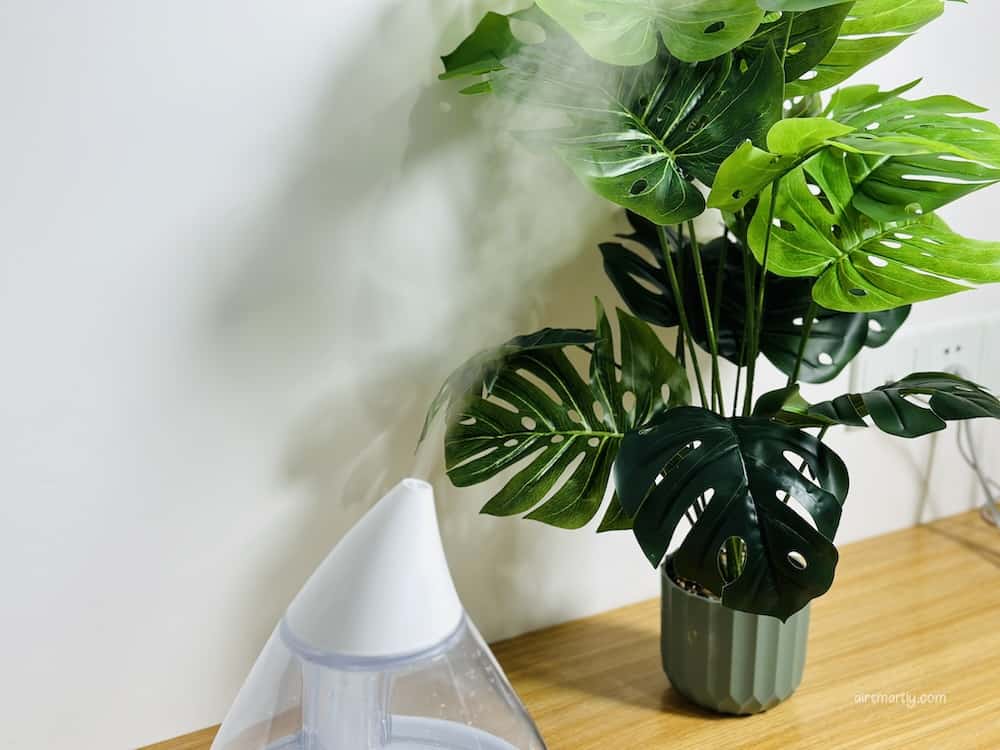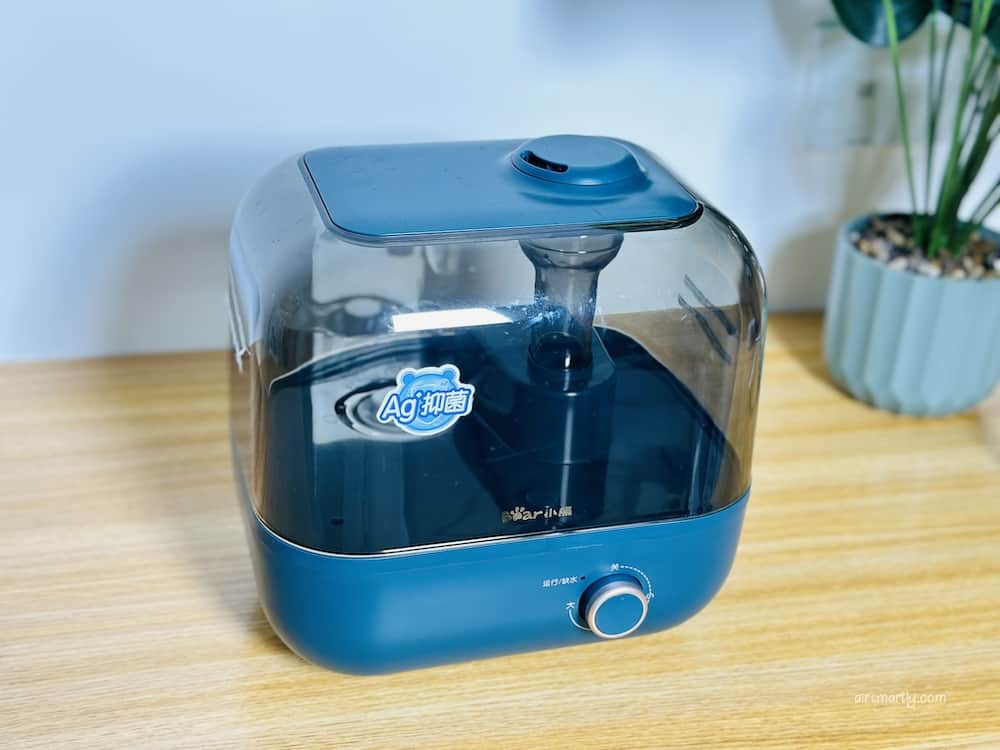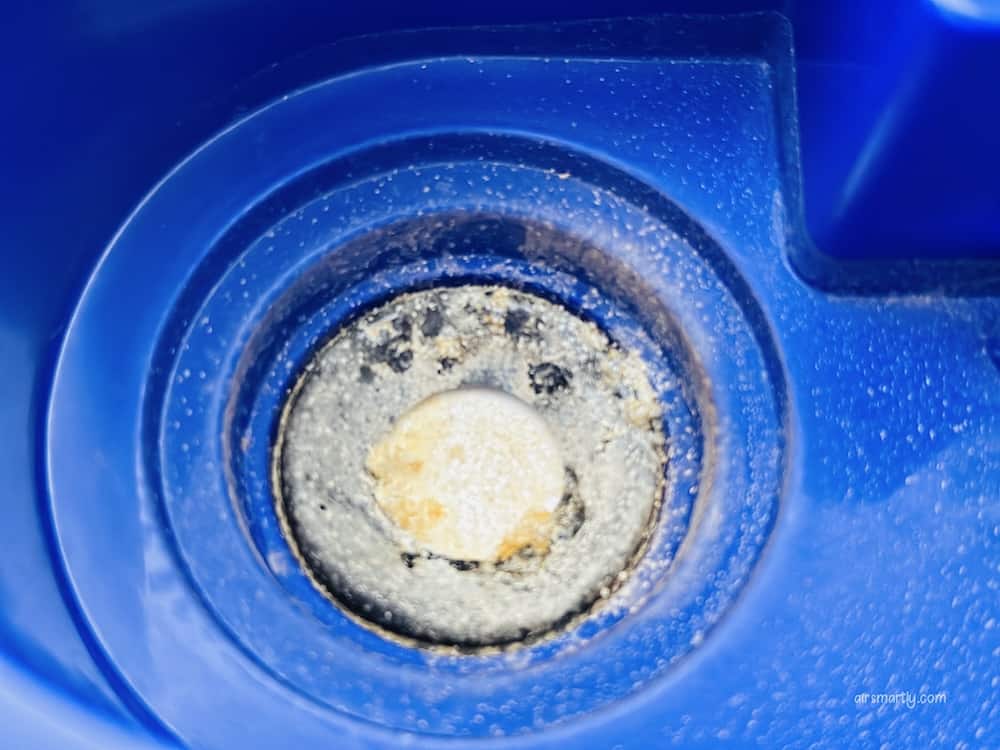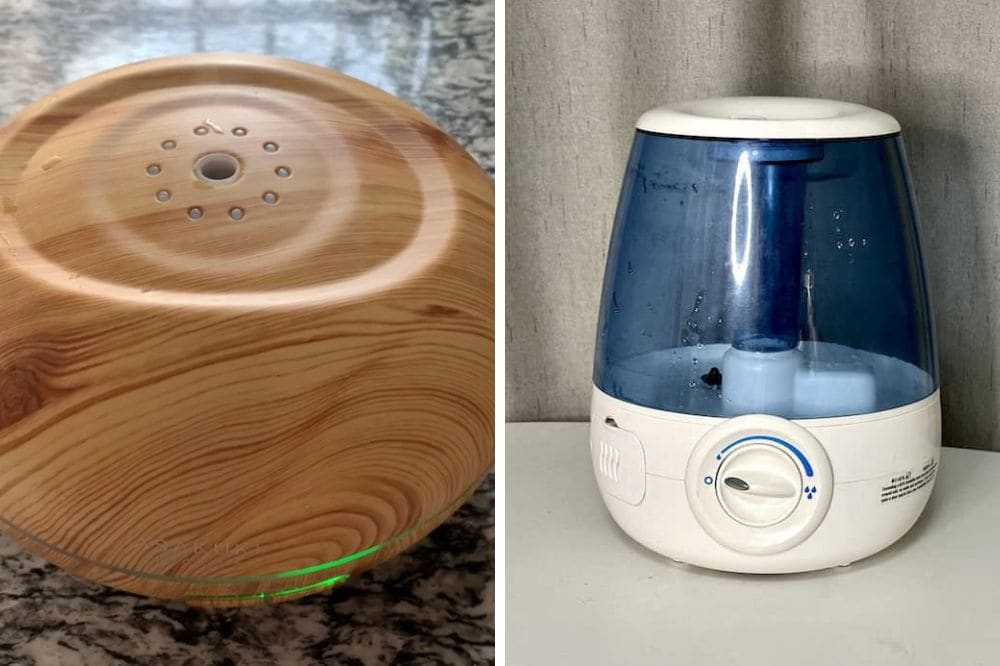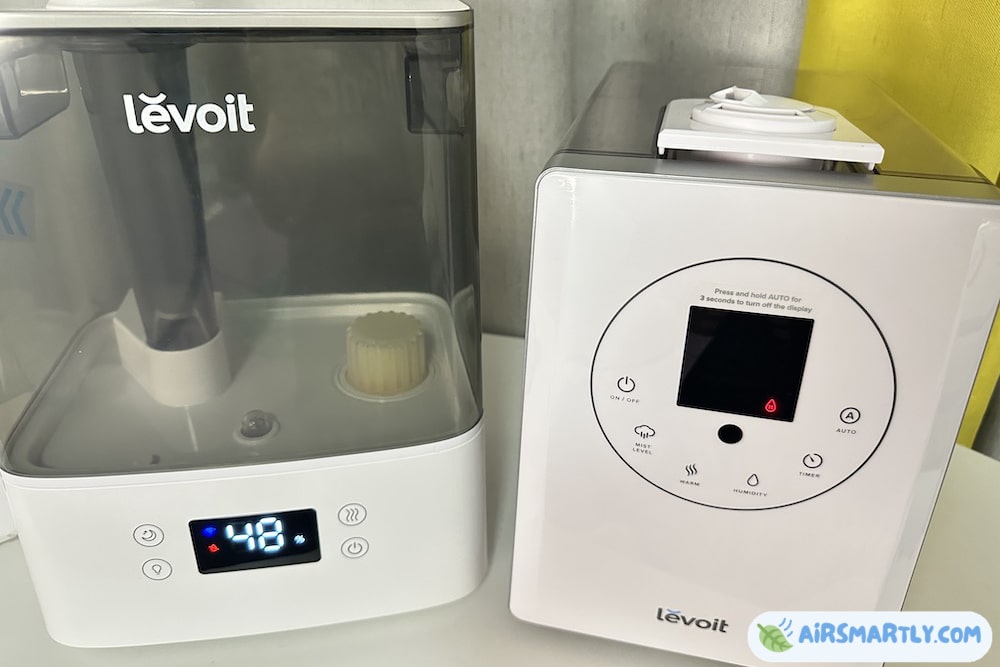Nowadays, humidifiers range from under $20 to models that cost several hundred dollars. When deciding how much to invest, it’s helpful to consider the lifespan of a humidifier. Typically, a humidifier can last between three to ten years, with furnace humidifiers usually outlasting those designed for a single room.
There are many ways to extend the lifetime and signs remind you to replace it. Without further ado, let’s dive in.
How long Can a humidifier last?
Generally, manufacturers provide a one to two-year warranty for regular humidifiers and a five-year warranty for whole-house humidifiers. But humidifiers can usually last longer than that.
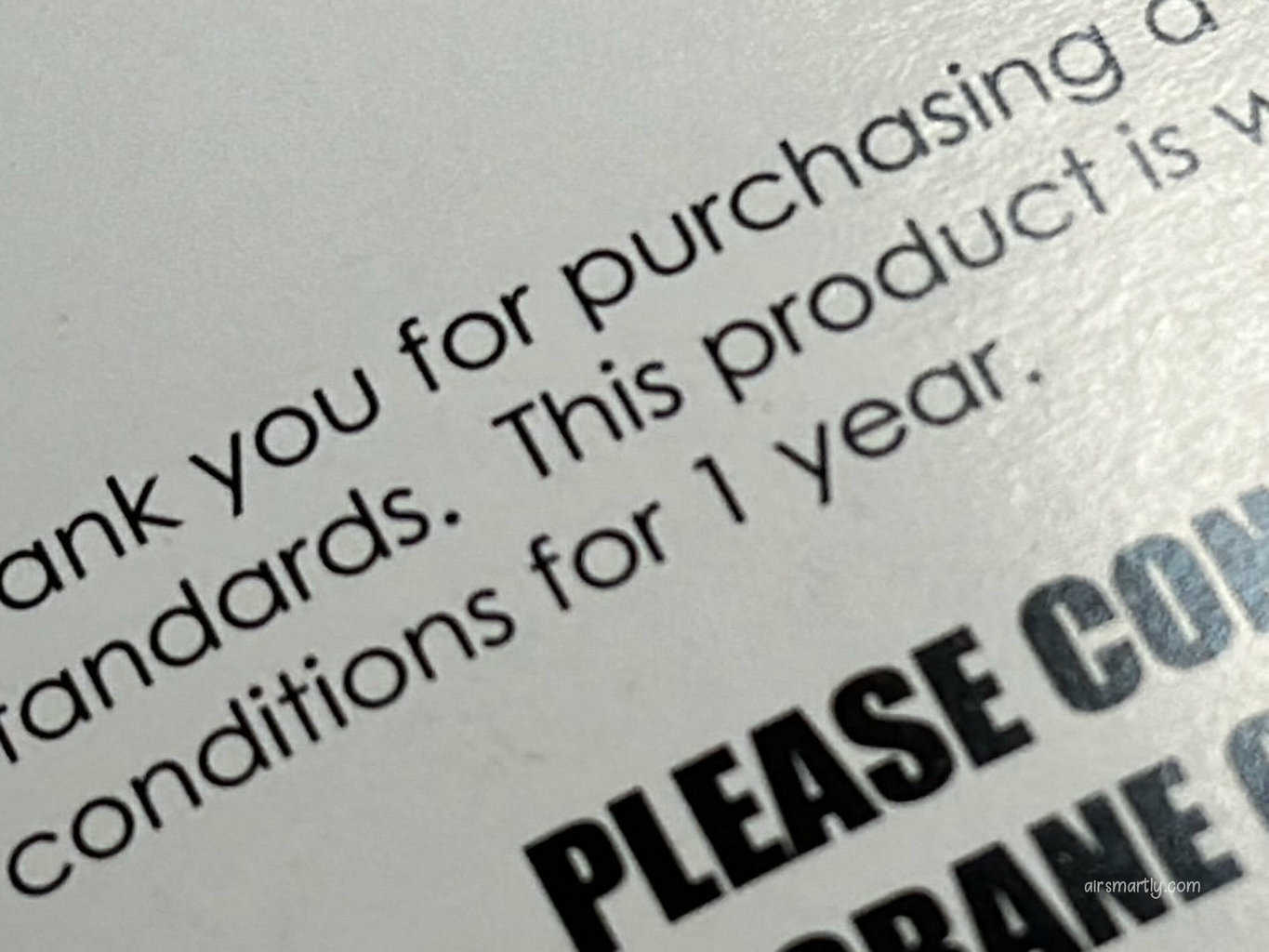
Regular humidifiers can serve you up to ten years, and furnace humidifiers can last twenty years.
Simply put, three to ten years is a normal range for a humidifier. Furnace humidifiers tend to last longer than regular humidifiers, but there is no big difference between evaporative and ultrasonic humidifiers.
Many factors will affect how long a humidifier lasts, such as the material it is made of, how frequently you use it, how often you maintain it, etc.
For example, if you insist on adding tap water to your ultrasonic humidifier and don’t clean it weekly, it is likely to stop working after a few months. I remember when I first used a humidifier, I made the same mistake, and it stopped working after just six months.
I will cover more on this when guiding you on how to prolong the lifetime later.
Signs that it is time to replace a humidifier?
You can reap an array of benefits by using a humidifier. However, you have to look for a replacement at some point in your life. There are some signs that can help you make the right decision.
Hard-to-remove deposits
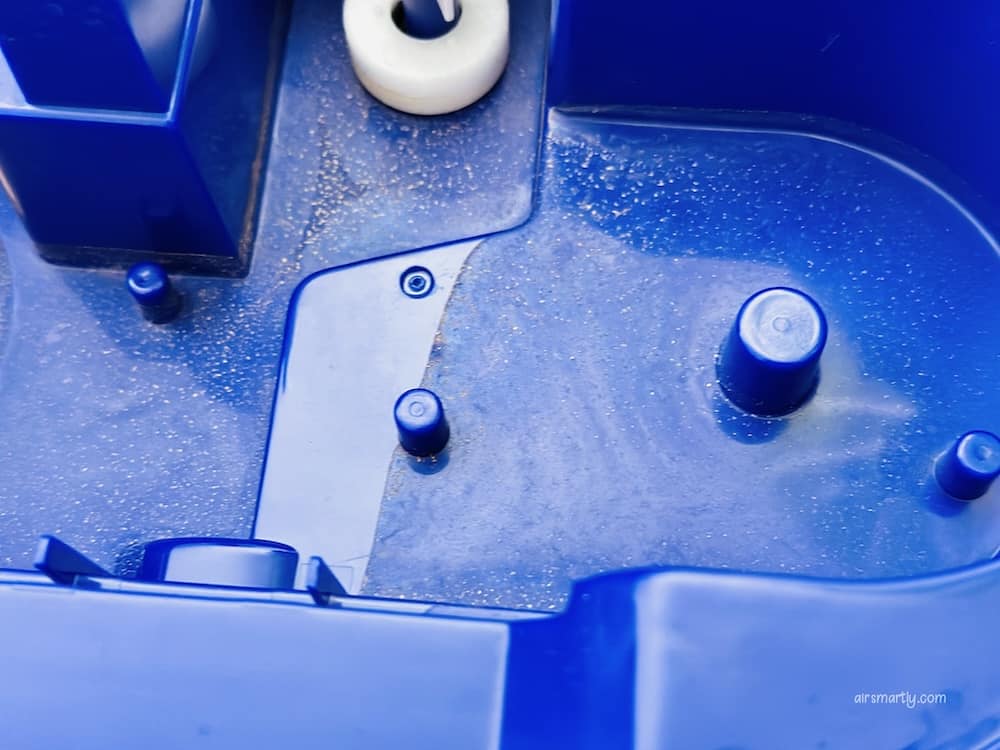
Despite having operated routine cleaning, some deposits in the water tank are hard or even impossible to remove over time. Your humidifier has a high likelihood of being clogged, and it is a good time to get a new one.
That often happens when users continuously add tap water to the humidifier. The mineral buildup and mold spores in the base or tank can sometimes be very hard to remove.
Cracks and leaks in the base and tank
Most humidifiers cost less than $100 but hiring a professional to repair it can cost a lot.
If you find cracks and leaks in the base and tank, it is possible that you can’t fix them on your own. In this case, you’d better purchase a new one, especially when it has been last for a few years.
Reduced mist after cleaning
The mineral deposits can clog the internal parts that are hard to reach through cleaning. When these deposits get more and more, it will decrease the output rate of water vapor.
When you notice the machine can’t produce mist as much as before after a thorough cleaning, and it can’t take effect in your space, it is a good sign for a replacement.
A humidifier stops working after ten years
A humidifier that serves you for ten years is already good enough. When such a device stops working, you can just get a new one. Rather than taking time to fix it, why not give yourself a chance to enjoy the advanced technologies in a new model?
How to extend the lifespan of your humidifier?
Even if you and your friends have purchased the same model, the lifetime of these two machines can vary a lot. I bought the Crane Drop humidifier with my friend, but his stopped working after 3 months of use, while mine still works perfectly.
You can take some measures to extend the lifespan, and some methods are very easy to operate.
Routine cleaning
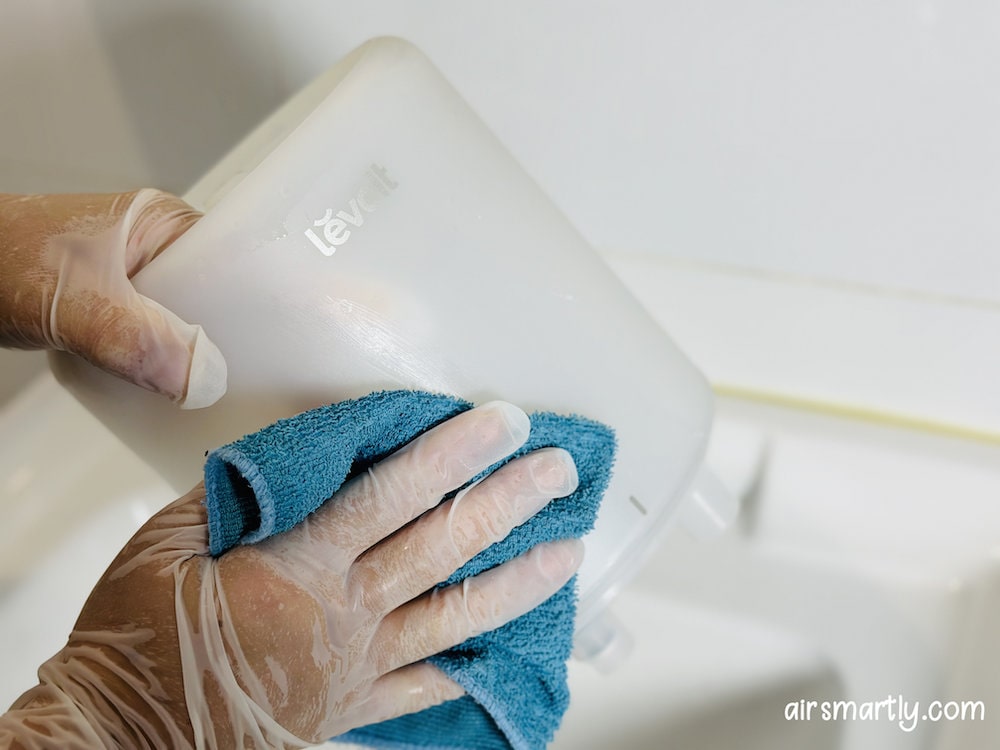
The blockage is the main culprit of why humidifiers will stop working, and regular cleaning is the best way to prevent it.
Refilling water every day and cleaning the device once a week can remove and prohibit the growth of mineral buildup, fungus, bacteria, and other impurities.
Using stagnant water in your humidifier can lead to clogging and health risks from white dust, mold spores, and bacteria being released into the air. From my experience, neglecting regular cleaning is the primary reason a humidifier may break down prematurely.
Use distilled water or RO water
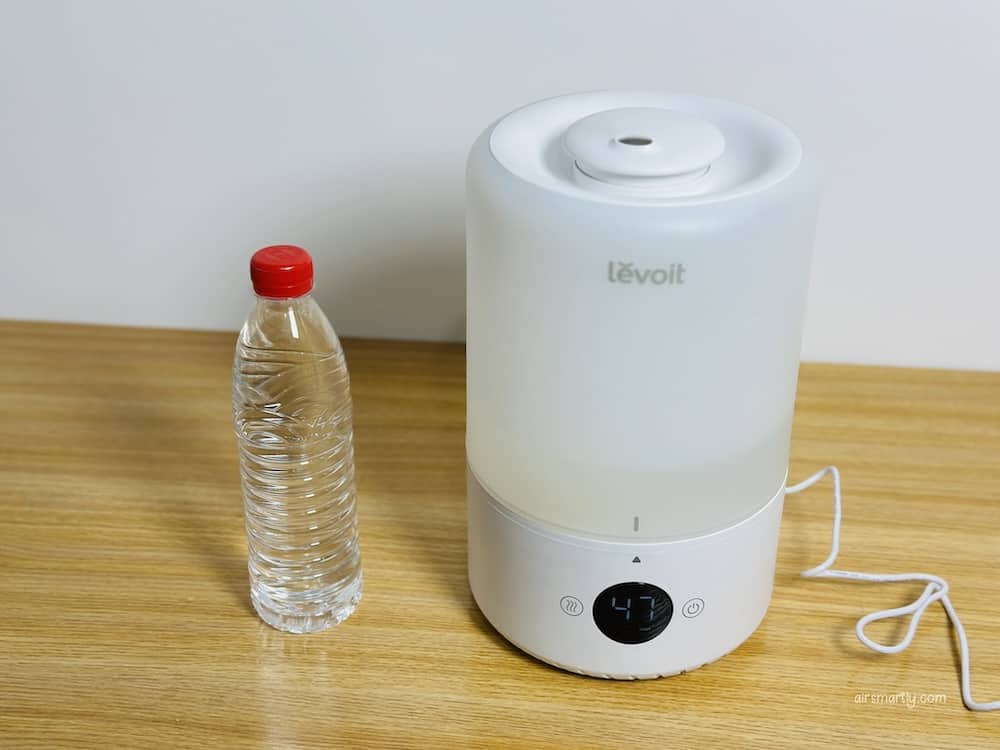
Most American homes use hard water, which contains high levels of dissolved minerals. If you add hard water to a humidifier, you must deal with more sediment and microorganisms.
Distilled water is your best bet because it is free of any impurities. It can cause much fewer clogs than other types of water, which help with extending the lifetime in the long run. Trust me, it can save you more time on cleaning.
If you don’t have distilled water, you can also choose RO water, which is also much better than tap water. I often test and use these humidifiers with RO water and it works great.
Store it in the right place
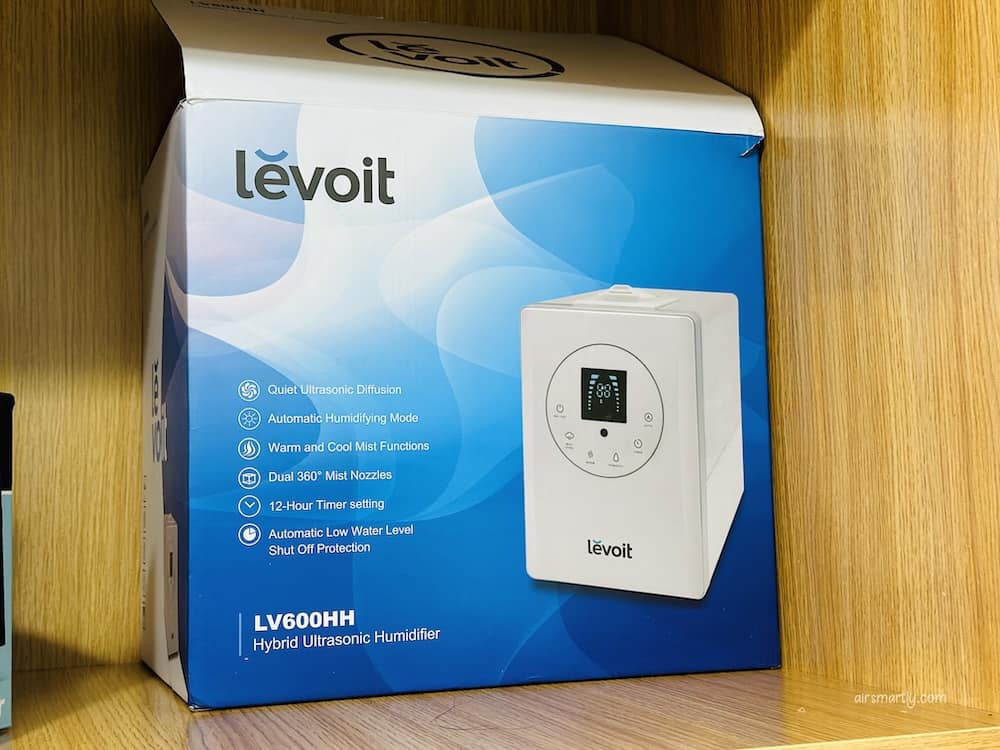
Even though you can still benefit from using a humidifier in summer, many people choose to put it away after the heating season.
If you want your machine can serve you as well as before the following year, you should make sure each part is dry off, put it in a box, and then store it in a dry and cold place.
I recently found brown stuff growing in the base of my Air Innovation humidifier after I opened it again after a few months, which is quite scary.
Keep it away from sun exposure
Sun exposure can promote the growth of algae and foster plastic weathering. As you know, almost all humidifiers are made from BPA-free plastics. Sun’s rays will lead to cracks from happening.
One of my humidifiers turned from white to yellow after being exposed to sunlight for a few months, which really affected its appeal.
Purchase a model from a reputable brand
Although you can find many models with an extremely low price tag, it’s advisable to choose a model from reputable brands with good ratings. This ensures you get better warranty coverage and access to support for any issues that may arise. Some trustworthy brands include Honeywell, Vornado, and Levoit.
Conclusion
Like other household appliances, humidifiers need to be replaced every few years. Three to ten years is a standard expectation, but there are some ways to prolong the lifespan.
Based on my experience, routine cleaning is crucial for keeping your device in an optimal state. Meanwhile, running your humidifier with distilled water is also helpful. You should also pay attention to humidifier placement and storage.
Other than that, you shouldn’t purchase a flimsy one because of its low price tag. You will turn out to pay more since you will need to replace it after a few months.

